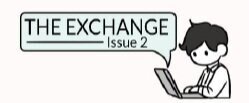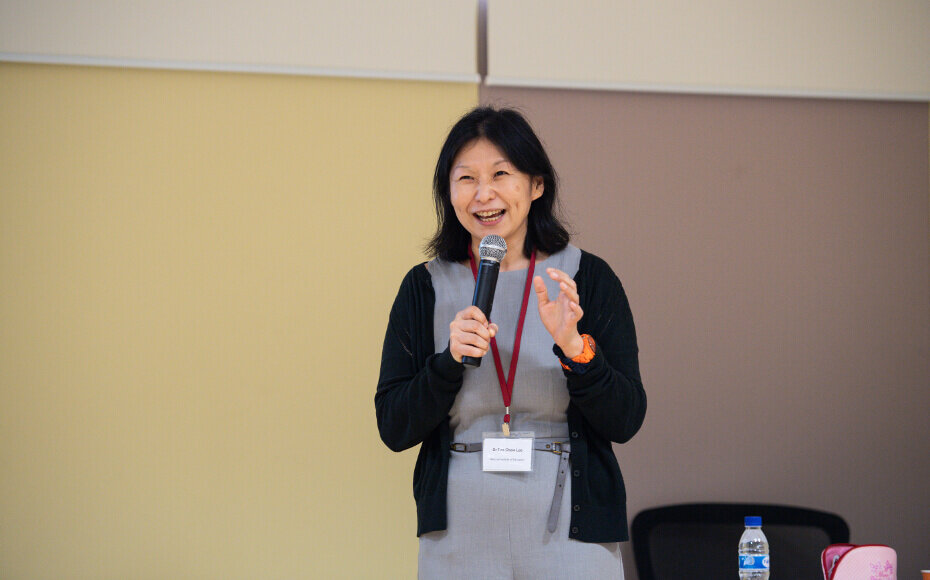
The journey of a thousand li begins with a single step. Our aim is to chronicle every step we take as our community matures in honesty, humility and truth.
A lofty goal perhaps, and one we'll pursue together.
Someday, your story will appear here!
Op-Ed in Today Online: Commentary by Teo Chew Lee and Tan Seng Chee
“While providing real-time individualised instruction is a boon, the notion of dehumanising education by taking a human teacher out of the equation pricks the nerves of many people. It begs one to revisit some fundamental questions on education and learning. What is learning? What will be sacrificed in the process of replacing human teachers?”
Dr Teo Chew Lee and A/P Tan Seng Chee have published an Op-Ed in Today (Online version) on “Why AI can better help students as a learning buddy and not as a teacher”. Read more by clicking on the following button.
ABOUT THE AUTHORS:
Dr Teo Chew Lee
Dr Teo Chew Lee is a senior research scientist and programme director of the Learning Sciences and Innovation Research Programme at the National Institute of Education.
A/P Tan Seng Chee
Dr Tan Seng Chee is an Associate Professor with the Learning Sciences and Assessment academic group at the National Institute of Education. He is also an Associate Dean of graduate education by research.
Knowledge Building in Singapore's Classroom - SingTeach Issue 74, September 2020
SingTeach Issue 74, September 2020 on Knowledge Building (KB) in Singapore’s Classroom has been published.
It features a guest editor note from Dr Teo Chew Lee, as she talks about knowledge building’s role in today’s knowledge age and the potential of knowledge building being used as part of a nation’s economic growth. Teachers were also invited to share about how they helped develop co-constructors of knowledge and nurtured students with a love for learning with knowledge building.
NIE’s Knowledge Building Team, Sept 2020
This SingTeach issue also provides perspectives from local teachers who practice knowledge building in Singapore schools, with contributions from international and local experts about knowledge building being a principle-based approach towards teaching and learning. The knowledge building team in NIE also discusses the impact of knowledge building on the present and future of Singapore’s education system.
You can read more about it on the NIE SingTeach website or using the following button link.
NTU-MIND Symposium and Junior Investigator Flash Talk
On 1st October 2020, Dr Teo Chew Lee was invited to present her work at the NTU-MIND Symposium (Learning and Memory II). She spoke on the “Quantifying Complex Indicators of Knowledge Building Discourse from Multiple Data Source”. The talk was attended by over 100 participants on the Zoom platform.
As part of the symposium, a Junior Investigator Flash Talk series was also held with several junior investigators, comprising of post-docs and graduate students, being invited to present pre-recorded talks at the symposium. These “flash talks” were part of a competition and assessed by judges, with prizes for the best speaker.
Mr Andy Ng, current graduate student with NIE
We are pleased to share that Mr Andy Ng, one of our KB teachers in Singapore and a current graduate student at the National Institute of Education (NIE), has placed first in the category of Graduate students. Congratulations! Andy’s talk is on “Curiosity, Confusion, and Epistemic Complexity” and his award-winning video can be accessed from below.
The Exchange, Issue 2 - Reflections by teachers entering a "new normal"
The exchange is a newsletter developed by the Gifted Education Branch, and in this second issue, teachers from St. Hilda’s Primary School were invited to share their classroom practices and thoughts on their changing roles as technology-empowered educators.
Click the following link for more information and details on how the realities of social distancing and home-based learning has forced educators to relearn new approaches to teaching and learning.
We thank the Gifted Education Branch for the permission to share this article with the Knowledge Building community and wider audience.
Home-Based Learning: What have we learnt? A Reflection by Dr. Teo Chew Lee
Dr. Teo Chew Lee from OER, NIE, NTU
Dr. Teo Chew Lee, Senior Research Scientist from the Office of Education Research at National Institute of Education, Nanyang Technological University Singapore, was invited by the media to comment on the useful synergies, when combined, can lead students to achieve a more enriching learning experience after Home-Based Learning was conducted during the Circuit Breaker period.
On synergies and lesson crossovers
Dr. Teo mentioned that among the various approaches and strategies that teachers have employed in schools during HBL, many of these innovative approaches can already be translated into use within a classroom.
For years, education researchers have been looking at meaningful learning that happened seamlessly in a formal school setting and in any out-of-school setting. There is also a powerful notion of pervasive knowledge building where empirical evidence have shown that learning is not confined to a particular location, occasions or subjects. Learning pervades in different aspects of our students’ life and in almost everywhere.
Be it HBL or regular schools, what is needed is the need to foster interest and motivation in the students, making learning meaningful, manageable and rewarding to students, by engaging students in content and resources that are relevant to them. The current system has been thoughtfully and systematically brought technology into the classroom to enhance the interaction between teachers and students, but, however, due to the over-reliance on face-to-face time in classes, many teachers and students were unable to fully capitalise on the power of technology in teaching and learning.
HBL has presented new opportunities for teachers to rethink the way they are engaging their students. Dr. Teo mentioned she had heard and read new creative ways of teachers during the circuit breaker period and also saw new convictions among the teachers. They became more more willing to engage their students’ ideas and questions during online discussion in HBL, and wanted to make things more exciting for their students.
The synergy is present as teachers and students think about both online and face-to-face learning as part of a holistic learning environment, that supports students in their learning journey, develop the competencies to collaborate and learn independently, and not just as part of the development of subject mastery.
On main challenges during HBL
Teachers and students were able to adapt to the constraints and opportunities for learning during the circuit breaker period, with many examples of teachers using technology and adapting instructional material and strategies to enable students to learn more independently and to also become interested about content of online discussions.
One of the key challenge is students’ access to online materials and resources when the students are learning from home, especially for younger students and those from less privileged backgrounds. Some students also do not have the luxury to remain seated and engage in a Zoom lesson without being disturbed. For example, there were children who need to take care of their siblings while attending online lessons and these are authentic issues that schools have considered and reached out to ensure these students were taken care of during HBL.
Another challenge is the common view of HBL as a supplementary component of school life. Schools may have implemented e-learning weeks but the extended HBL was a wholly different scenario from traditional e-learning and classroom learning. Teachers can no longer rely on getting back to schools to continue discussions, while they also need to also continuously think creatively about the engagement with students.
With regards to these two challenges, teachers should not imagine the exact transfer of what they conduct in classes onto the online environment. Rather, they should explore asynchronous environments or set up simplified activities that students can engage while at home. The principle of active teaching and learning does not changed just because of HBL.
On useful practices that mainstream schools can take away from HBL
Dr. Teo has been working on a mode of teaching known as the Knowledge Building pedagogy and using related technology, such as the Knowledge Forum. There are 12 Knowledge Building principles (e.g. real ideas and authentic problems, ideas that are improvable, pervasive knowledge building) that help teachers to rationalise their teaching moves and decisions. Knowledge building differs from traditional learning as this approach is positioned as an overt activity that produces knowledge and ideas that have a “public” front, and requires collective effort to learn. Students’ ideas are thus often made known to the class and everyone has a shared responsibility to improve these ideas. This is unlike traditional learning, which refers to an internal and invisible process within an individual and is usually geared towards producing change in individual beliefs or attitudes.
During HBL, teachers were able to continue using the knowledge building principles to rationalise their lesson and interactions with students. It enabled teachers to focus on student’s thinking, ideas, and inquiries, despite the challenges imposed by social distancing and HBL.
For example, Dr. Teo recalled that a Physics teacher requested Secondary 1 students to conduct an experiment and build a catapult using ice-cream sticks, bottle caps and rubber bands during the HBL period. The photos and videos taken from the experiment were subsequently uploaded onto Knowledge Forum for discussions.
This activity led to wide-ranging discussions on the topics of energy conversion, renewable energy and other authentic global problems, such as power shortages that were faced in less-developed countries and schools.
For other lessons that could be drawn from the HBL, please refer to the reproduced article on the following NIE website.
Source: The Straits Times © Singapore Press Holdings Limited. Permission required for reproduction
Creating Idea-corners at Home for Knowledge Building by Dr Teo Chew Lee
As part of OER Education at Home series, Dr. Teo Chew Lee has created a video about the creation of idea-corners at home for knowledge building, especially during periods of Home-Based Learning in Singapore. You can view the embedded video on this page or at this link.
Dr. Teo Chew Lee from NIE, NTU, Singapore







